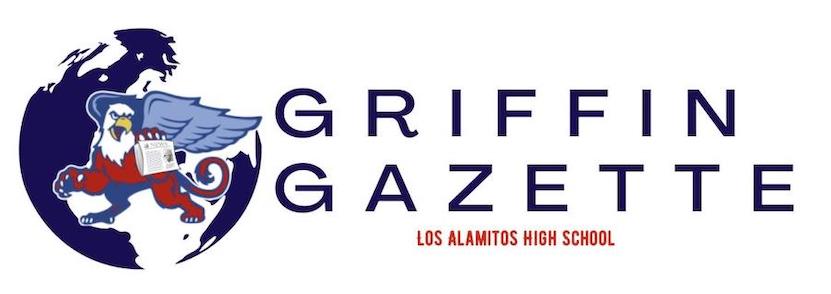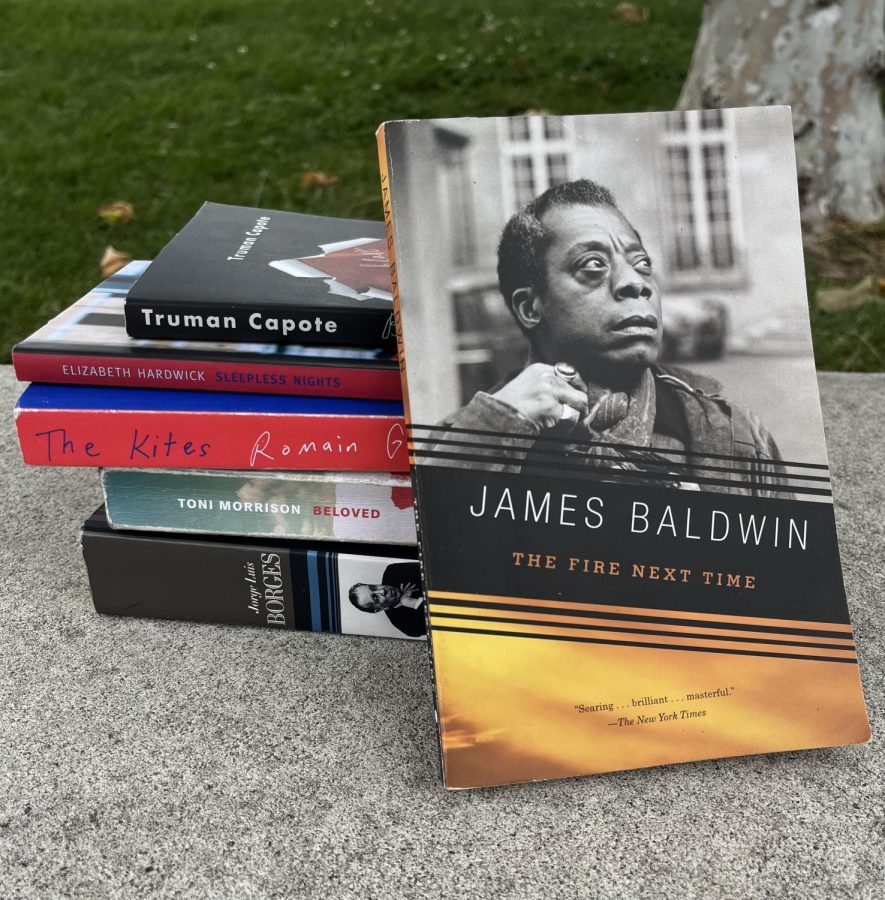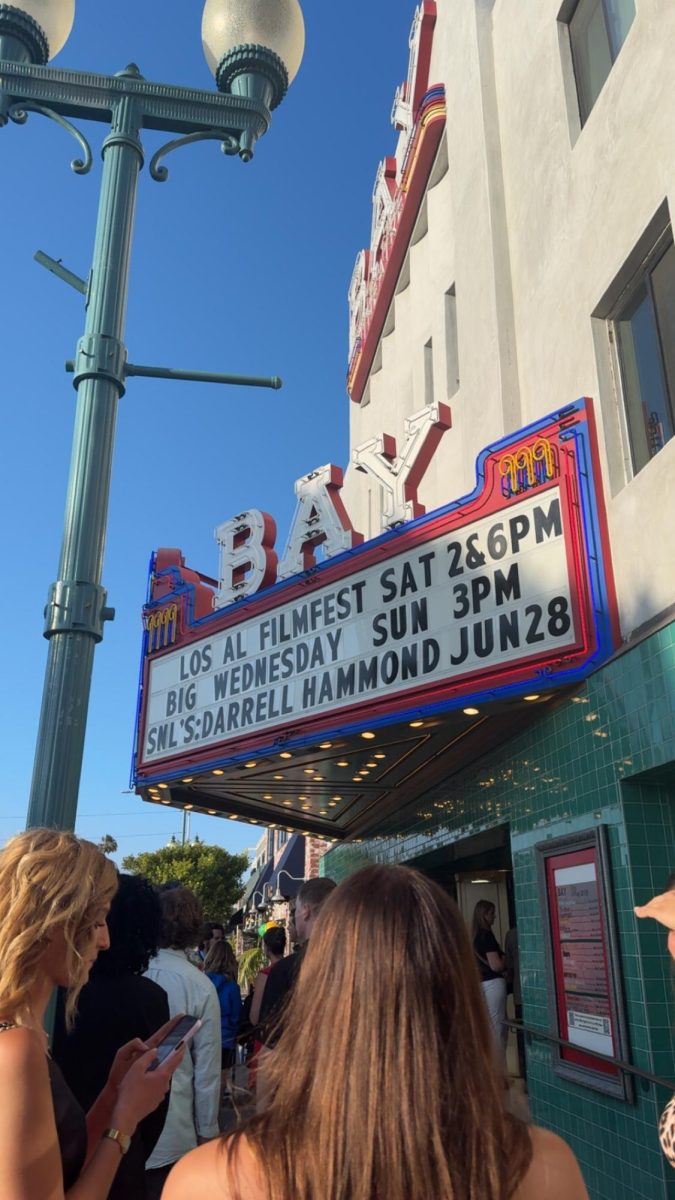The history and impact of African-American Vernacular English
African American Vernacular English has recently sparked a lot of discussion and debate online.
Appropriating Language, especially black English, has become a hot topic of discussion.
May 23, 2023
LOS ALAMITOS, CA—Language is paramount in our society; it is the building block of nearly every social environment that exists, the cornerstone upon which all human thought rests upon.
Throughout history, language has been shaped and reshaped, molded and transfigured, recorded and reconstructed. It is ever-changing and constantly evolving. The internet has, as one might expect, stimulated its growth over the past decade, and with its growth a debate has been sparked about language and culture. At the heart of the discussion is the complexity of race relations and its tumultuous relationship with language.
African-American Vernacular English (commonly abbreviated as AAVE) or Ebonics refers to the colloquial language that the African American community uses. Here is a list of common AAVE words:
- Dig – to understand or appreciate, “I dig that”
- Bad – used as, as in “down bad”
- Be – used to describe a habitual action, “we been doing that”
- Sis – endearing term for a woman
- Strapped – carrying a gun, usually a pistol
- Hood – neighborhood, often where someone grew up
- Crib – house, or place of dwelling
- Tea – gossip
- Slay – do a great job at something, amazing
*This list is not comprehensive
AAVE has its roots in African languages that kidnapped slaves spoke. African words and phrases were combined with English phrases, which in turn produced AAVE.
This type of vocabulary has had a complicated, or downright ugly, perception among the upper-class members of America. AAVE has been labeled as ghetto, poor, uneducated, and ratchet, among a slew of other insulting phrases. There seems to have been a fear that the black language will contaminate “proper English.”
“The brutal truth is that the bulk of white people in America never had any interest in educating black people, except as this could serve white purposes,” James Baldwin, a prominent Black writer active who began writing in the 50’s, wrote in his 1979 essay If Black English Isn’t A Language, Tell Me What Is? He continued, “It is not the black child’s language that is in question, it is not his language that is despised: It is his experience.” Therefore, that elitist mentality of language subtly uplifted the whiteness of America by fabricating a language superiority while also attempting to erase the blackness that was trying to root itself in American culture.
As a result, African Americans have felt the need to hide or fully ignore the dialect that is a product of their culture. “Code-switching” is when one switches between using two dialects, depending on who they are conversing with. Many black people have used code-switching to shield themselves from the racist American culture which shuts them out. Racism has deemed Ebonics (or, rather mockingly, the “Blaccent”) not high-class enough for civilized speech.
However, as James Baldwin pointed out in his essay, and as many have pointed out recently online, AAVE has been integrated into the mainstream but the black community has received no credit. It is this whitewashing of language by various degrees which is the insult to injury. Take the list of AAVE terms I presented toward the beginning, nearly all of them have seeped their way into the colloquialism of the internet, no longer just for the Black community. Yet, there has been a lack of credit given to the black community for contributing to culture, historically. America, effectively, has adopted Black American culture while simultaneously pushing it out.
The treatment of minorities in this country, including the black community, has unequivocally improved, and the black community and many aspects of its culture have , at long last, found a stable footing in American culture. Our generation has also, in my opinion, done a good job in at least starting to dispel the perception that AAVE is “uneducated” English. Recently online, many people are attempting to raise awareness of the inaccuracies revolving around AAVE.
However, a startling notion has cropped up in all of the online discussions. Some people say that only black people are able to use AAVE, and if anyone else adopts it into their vocabulary that is cultural appropriation. I reject that stance.
As I spelled out before, AAVE has never been given the credit it deserves despite its assimilation into the American vocabulary. That is an ugly piece of history that we, in the present, must face. The way to face it is not by gatekeeping culture. Culture is meant to be spread, diffused, and transformed. That is, as I understand it, the goal of the melting pot that is America. America has—despite its reluctance to acknowledge it—always been a conglomeration of cultures. Ethnicities intermingle here, and through the exchange of goods, services, and money, so too do art, language, and customs get exchanged and rewarded.
If AAVE were to be exclusively for black people, then cultural growth will be stifled. It separates them by a social chasm too treacherous to cross. Morphing aspects of culture, especially language, into an esoteric barrier is counterproductive to the progress of race relations in this country.
I like to think about it in other disciplines. Take music, for instance. Jazz is traditionally a black form of music it is also the most important American contribution to the world music scene. Jazz once had the same perception as AAVE. It was declared as the “Devil’s music,” music of the poor, music of the lower class. Yet, as Jazz grew in popularity, its integration into the mainstream became undeniable, especially as Jazz and Blues morphed into Rock-and-Roll then eventually into several other genres like R&B, Soul, Neo-Soul, Hip-Hop, etc.
Jazz’s popularity gave rise to many prominent white artists as well, such as Frank Sinatra, Dave Brubeck, Bill Evans, and later down the line Elvis Presley. Although they are white artists practicing a traditionally black art form, is the solution really to have Elvis Presley never pick up a microphone?—or for Frank Sinatra to have never graced a stage? That’s an absurd conjecture. Yet, that would be the result if cultures had to strictly adhere to what they originated from.
To really repair the wounds that minorities bear in this society, it is necessary to strip race of its stranglehold on the American conscience. We must come to realize that no matter what heritage we claim, where our ancestors came from, or what group we owe allegiance to, we are more alike than unalike—that is what creates unity. Yes, it is necessary to understand our history—all parts of it, the bad and the good. “They are, in effect, still trapped in a history they do not understand; and until they understand it, they cannot be released from it,” James Baldwin wrote in his other famous essay “The Fire Next Time.” Although he was addressing white America at the time, his words can apply to society as a whole.
“Definitions belong to the definers, not the defined,” wrote Toni Morrison in her critically-acclaimed novel “Beloved”. We, as a society, now wield the power to allow the “defined” to be a part of the conversation, to have merit of their own and the credit they deserve without diminishing the natural spread of culture.







Isabella Gasper • May 24, 2023 at 2:22 pm
Wow! This is such a fantastic article, it really put things into perspective for me and I hope for others as well. Great job!
Katie Arnoult • May 24, 2023 at 2:03 pm
YAAA MICHAEL! This is a really great article!
Bella Kim • May 24, 2023 at 2:00 pm
AWESOME JOB Michael!! I love this article. This is a really enlightening and important topic that people should know more about. I like how you used the example of jazz for black culture in the US. Also great, creative photo!